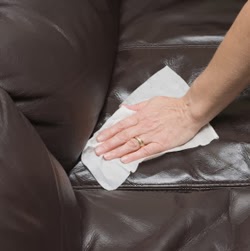Obsessive-Compulsive Disorder (OCD)
At one time or another, we’ve all double-checked that we locked the front door, “knocked on wood” to ward off certain disaster, or had. While most people continue about their daily routine without giving these experiences a second thought, if you have obsessive-compulsive disorder (OCD), these kinds of occurrences can become both distressing and debilitating.
OCD is considered an anxiety disorder. Obsessions are thoughts, images, or ideas that won’t go away, are unwanted, and are extremely distressing or worrying (“What if I become infected with a deadly disease?” or “What if I molest a child or murder my partner?”). Compulsions are behaviours that have to be done over and over again to relieve anxiety. Compulsions are often related to obsessions. For example, if you are obsessed with being contaminated, you might feel compelled to wash your hands repeatedly. However, this is not always the case.
Most people with obsessive-compulsive disorder fall into one of the following categories:
.jpg)
- Washers are afraid of contamination. They usually have cleaning or hand-washing compulsions.
- Checkers repeatedly check things (oven turned off, door locked, gas off etc.) that they associate with harm or danger.
- Doubters and sinners are afraid that if everything isn’t perfect or done just right something terrible will happen or they will be punished.
- Counters and arrangers are obsessed with order and symmetry. They may have superstitions about certain numbers, colours, or arrangements.
- Hoarders fear that something bad will happen if they throw anything away. They compulsively hoard things that they don’t need or use.
Just because you have obsessive thoughts or perform compulsive behaviours does NOT mean that you have obsessive-compulsive disorder.
Obsessive-Compulsive Disorder – Diagnostic Criteria
A. Either obsessions or compulsions:
Obsessions are as defined by
.jpg) 1. Recurrent and persistent thoughts, impulses, or images that are experienced, at some time during the disturbance, as intrusive and inappropriate and that cause marked anxiety or distress
1. Recurrent and persistent thoughts, impulses, or images that are experienced, at some time during the disturbance, as intrusive and inappropriate and that cause marked anxiety or distress2. The thoughts, impulses, or images are not simply excessive worries about real-life problems
3. The person attempts to ignore or suppress such thoughts, impulses, or images, or to neutralize them with some other thought or action
4. The person recognizes that the obsessional thoughts, impulses, or images are a product of his or her own mind (not imposed from without as in thought insertion)
Compulsions as defined by
1. Repetitive behaviours (e.g., hand washing, ordering, checking) or mental acts (e.g., praying, counting, repeating words silently) that the person feels driven to perform in response to an obsession,
.jpg) 2. The behaviours or mental acts are aimed at preventing or reducing distress or preventing some dreaded event or situation; however, these behaviours or mental acts either are not connected in a realistic way with what they are designed to neutralize or are clearly excessive
2. The behaviours or mental acts are aimed at preventing or reducing distress or preventing some dreaded event or situation; however, these behaviours or mental acts either are not connected in a realistic way with what they are designed to neutralize or are clearly excessive 3.At some point during the course of the disorder, the person has recognized that the obsessions or compulsions are excessive or unreasonable. Note: This does not apply to children.
4.The obsessions or compulsions cause marked distress, are time consuming (take more than 1 hour a day), or significantly interfere with the person’s normal routine, occupational (or academic) functioning, or usual activities or relationships.
5. If another Axis I disorder is present, the content of the obsessions or compulsions is not restricted to it (e.g., preoccupation with food in the presence of an Eating Disorder; hair pulling in the presence of Trichotillomania; concern with appearance in the presence of Body Dysmorphic Disorder; preoccupation with drugs in the presence of a Substance Use Disorder; preoccupation with having a serious illness in the presence of Hypochondriasis; preoccupation with sexual urges or fantasies in the presence of a Paraphilia; or guilty ruminations in the presence of Major Depressive Disorder).
6. The disturbance is not due to the direct physiological effects of a substance (e.g., a drug of abuse, a medication) or a general medical condition.
Obsessive-compulsive disorder (OCD) symptoms in children
While the onset of obsessive-compulsive disorder usually occurs during adolescence or young adulthood, younger children sometimes have symptoms that look like OCD. However, the symptoms of other disorders, such as ADD, autism, and Tourette’s syndrome can also look like obsessive-compulsive disorder, so a thorough medical and psychological exam is essential before any diagnosis is made. It’s also important to note that OCD is an anxiety disorder, and in children, the symptoms of anxiety usually change over time. So a child with OCD symptoms will not necessarily have OCD as an adult
Homeo treatment and Psycho Therapy for obsessive-compulsive disorder (OCD)
There are many effective treatments available for Obsessive-Compulsive Disorder (OCD), ranging from therapy to self-help and medication. However, Symptomatic Constitutional Homeopathy medicine treatment for OCD with cognitive-behavioral therapy is more effective for fast improvement
Whom to contact for Obsessive-Compulsive Disorder (OCD) Treatment
Vivekanantha Clinic Doctors treats many cases of OCD with successful results. Many patients get relief after taking treatment from Vivekanantha Clinic. You can meet the Doctors at Vivekanantha Homeopathy Clinic, Velachery, Chennai 42. To get appointment please call 9786901830, +91 94430 54168 or mail to consult.ur.dr@gmail.com,
For more details & Consultation Feel free to contact us.
Vivekanantha Clinic Consultation Champers
at
Chennai:- 9786901830
Pondicherry:- 9865212055
Panruti:- 9443054168
For appointment please Call us or Mail Us